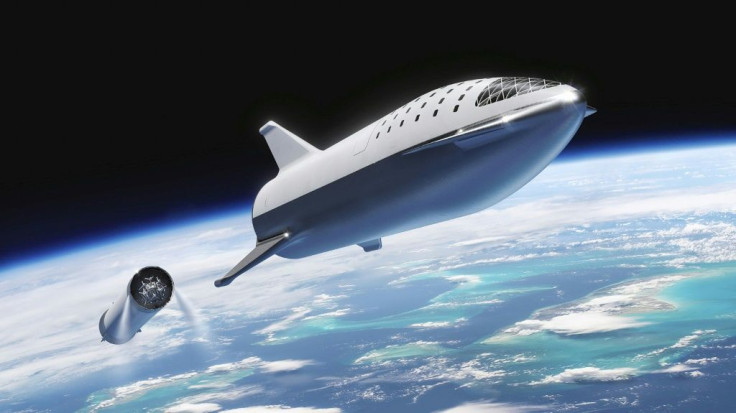Bill Gates Disagrees With Elon Musk: Humans On Mars Is Not The 'Solution'
KEY POINTS
- Bill Gates said he doesn't see Mars as "part of the solution" in saving humanity from possible extinction
- He believes the focus should be on preserving Earth and making it "hospitable to human life"
- Gates recently released a new book, "How to Avoid a Climate Disaster: The Solutions We Have and the Breakthroughs We Need"
Unlike Tesla and SpaceX CEO Elon Musk, Bill Gates is not interested in traveling to Mars and building a human settlement on the red planet.
In an interview with “Bloomberg Technology” Monday, the Microsoft co-founder shared his opinion on space travel and why he doesn't see Mars as “part of the solution.”
“I think we should preserve this planet and make it hospitable to human life,” he said when asked by host Emily Chang whether he thinks Mars is the key to saving humanity from possible extinction.
Gates, who recently released his new book “How to Avoid a Climate Disaster: The Solutions We Have and the Breakthroughs We Need,” added that although it is a good thing that people are exploring possibilities when it comes to other planets, it would not address major problems such as climate change here on Earth.
“The idea of Mars or even artificial planets, you know, it's good that other people are doing that, but I'm not involved in that. I don't see that as part of the solution,” the philanthropist explained.
Gates also acknowledged that Musk and outgoing Amazon CEO Jeff Bezos are part of the movement against climate change — something he is pleased about despite the differences in their approach.
“Elon Musk and Jeff Bezos — they're in the climate game and in a constructive way, which I'm at least glad that they're putting some of their resources in this direction,” he said.
Gates also spoke about Musk and the need to address the larger climate change problems during an interview on the “Sway” podcast. He acknowledged that Musk's work with Tesla is “one of the greatest contributions to climate change anyone’s ever made,” but he admitted he’s “not a Mars person” and that he doesn’t “think rockets are the solution.”
He also emphasized that while companies like Tesla are doing great work on “easy stuff, like passenger cars,” there is still a lot to do.
“We’re basically not doing enough on the hard stuff: steel, cement, meat,” he said. “And sadly, the things people think about — the electricity, passenger cars — are a third of the problem. So we have to work on the two-thirds. And if all you pay attention to is those short-term metrics, not the green premiums across the board, then you miss out on what is the longest lead time, which is the hard stuff.”
Meanwhile, Musk has long been vocal about wanting to bring humans to Mars and plans to do so using SpaceX's Starship rocket — a reusable rocket-and-spacecraft combo that is currently under development at the company's Texas facility.
“This is not about everyone moving to Mars, this is about becoming multiplanetary,” he said in 2016 of establishing a human settlement on Mars, per National Geographic. “This is really about minimizing existential risk and having a tremendous sense of adventure.”
As for the reason why Musk is making Mars a priority, he told Ron Howard during an interview for a National Geographic Channel series in 2016, “The future of humanity is fundamentally going to bifurcate along one of two directions: Either we’re going to become a multiplanet species and a spacefaring civilization, or we’re going be stuck on one planet until some eventual extinction event.”

© Copyright IBTimes 2025. All rights reserved.





















